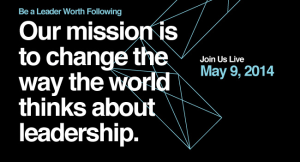
You grabbed the last piece of cake before your sister could get it. The principal called and said your daughter broke another girl’s toy because she got to it first. Your son pushed a boy on the playground because that boy got the last place on the teeter-totter.
“You know better than that!” Isn’t that what our mothers would have said — our fathers, too?
Mom always said, “You Know Better Than That”
What made them think that we knew better than that? It probably wasn’t written down anywhere, we couldn’t read much more than “Jack and Jill went up the hill” at that age. Our parents weren’t present at any of these events, and probably never identified these specific incidents — who should get the last piece of chocolate cake,what does taking turns mean when the same kid always hogs the same toy, what to do when someone cuts in line ahead of us?
But it’s not fair!
[pullquote] “I don’t know what your destiny will be, but one thing I know: The ones among you who will be really happy are those who have sought and found how to serve.”~ Albert Schweitzer[/pullquote]
How many times did we hear “you know better than that?” and we responded, “that’s not fair” (we learned much later that “fair” is truly a 4-letter word) while we vehemently denied any misdeed even though we kinda knew what “know better” meant?
We were taught a code of moral conduct
Through word and deed, our parents nourished us with a code of moral conduct formulated with a recipe of standard ingredients. Respect for others. Sharing. Taking turns. Using our words not our fists. Looking out for those less fortunate. Even turning the other cheek.
Is your culture starting to look like a petri dish?
What brought this to mind was the big stir over the last few weeks about the scathing op-ed piece by a departing vice president from Goldman Sachs, Greg Smith. In Mr. Smith’s words, the traditional Goldman culture consisted of “teamwork, integrity, a spirit of humility, and always doing right by our clients.”
He used pretty strong words — “toxic and destructive” — as he deconstructed Goldman’s culture, decrying the “decline in the firm’s moral fiber.” He insisted that the firm had forsaken its famed culture based on serving the best interests of its clients in exchange for one focused on making money for Goldman.
Outsiders may never know where the truth lies, but the controversy highlights some fundamental cultural differences between making money and serving clients.

It’s easy when the decisions are convenient
[pullquote]Every week, we’re sharing valuable and practical leadership tips and tools to help you BECOME a better leader. Why not get these valuable tips and techniques sent directly to your inbox every week so you don’t miss them?[/pullquote]
When the decisions are convenient, it’s easy to say we do both. We serve our clients to the best of our ability and it makes us money. What could be better than that?
What about when times are a little tougher?
But what happens when times are a little leaner? When making money is an awful lot harder? Do we still serve our clients’ best interests … or do we tend to compromise on what serves them best? Are we focused on getting them to buy our product or service simply because we need the money regardless of how it meets their needs?
It’s tempting to gamble with client relationships
Yes, it would be easier if we could masterfully combine these concepts and neatly arrange them on a silver platter. We know it’s possible to make money while serving our clients. It’s just that when there are conflicting choices in front of us, it’s tempting to gamble with client relationships to meet our short-term objectives.
Don’t do it. No Exceptions
On any given day, these decisions are difficult, but reasonable leaders can disagree about what serves the best interests of the client. You can be sure, however, that if you want to build a thriving business, with a sustainable value proposition, you need to focus intensely on meeting the best interests of your customers every single day. No exceptions.
Don’t line your pockets. Line your customer’s pockets
At certain times, the compromises may seem worth it, but your business will be at great risk when your customers learn – and you can be sure they will – that you are too eager to sell them products they don’t need and services they don’t want in the interest of lining your pocketbook instead of theirs.
A lifetime of trust can disappear in an instant
As we know, it can take a lifetime to build trust and a single moment to lose it all.
Leadership is about doing the right thing not just anything. Don’t let the trusted relationships with your clients become the first casualty of expediency or short-term objectives.
Just ask Mom and Dad. They knew it all along.



